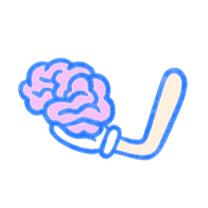*This post has been updated to reflect the ASWB Examination Guidebook, effective March 31, 2025.
The ASWB Masters (MSW) exam assesses the knowledge and skills required for entry-level social workers with an MSW. Here’s everything you need to know in 2025.
ASWB MSW Exam Overview
The ASWB MSW exam consists of 170 multiple-choice questions. Of these, 150 are scored, and 20 are unscored pretest items. You’ll have 4 hours to complete the exam. This exam is designed for individuals with a Master of Social Work (MSW) degree and does not require post-degree experience.
MSW Content Areas
I. Human Development, Diversity, and Behavior in the Environment (27%)
- Understand theories of human development across the lifespan, including psychological, biological, and social perspectives.
- Assess how race, ethnicity, gender identity, sexual orientation, disability, and culture influence identity and behavior.
- Identify the effects of trauma, abuse, loss, and oppression on individuals and systems.
- Apply knowledge of how social and environmental factors shape behavior and development.
II. Assessment and Intervention Planning (24%)
- Conduct comprehensive client assessments using interviews, observations, and collateral information.
- Evaluate strengths, needs, risks, and barriers to service delivery.
- Use assessment data to develop collaborative, goal-oriented service and intervention plans.
- Identify appropriate services and resources to meet client needs and promote empowerment.
III. Interventions with Clients/Client Systems (24%)
- Implement planned interventions using evidence-informed social work methods.
- Support client engagement and motivation through counseling, advocacy, and resource linkage.
- Apply models such as CBT, crisis intervention, and task-centered practice to support change.
- Monitor progress, evaluate outcomes, and adjust plans to support client success.
- Promote client self-determination, cultural responsiveness, and ethical service delivery.
IV. Professional Relationships, Values, and Ethics (25%)
- Demonstrate understanding and application of the NASW Code of Ethics and social work values.
- Maintain boundaries, confidentiality, and appropriate professional conduct.
- Use ethical decision-making frameworks to navigate dilemmas in clinical, organizational, or policy contexts.
- Engage in supervision and consultation to ensure ethical, competent practice.
- Uphold diversity, equity, inclusion, and anti-oppressive practice in all client interactions.
ASWB MSW Exam Study Tips
- Review the official ASWB Guidebook to understand content breakdown and testing procedures
- Use Pocket Prep practice questions to reinforce knowledge and simulate exam conditions
- Focus on strengthening your understanding of ethical decision-making and culturally responsive assessments
- Create a study schedule and use tools like flashcards and summary charts to organize information
- Join a study group or find an accountability partner to review tough concepts and practice scenarios

